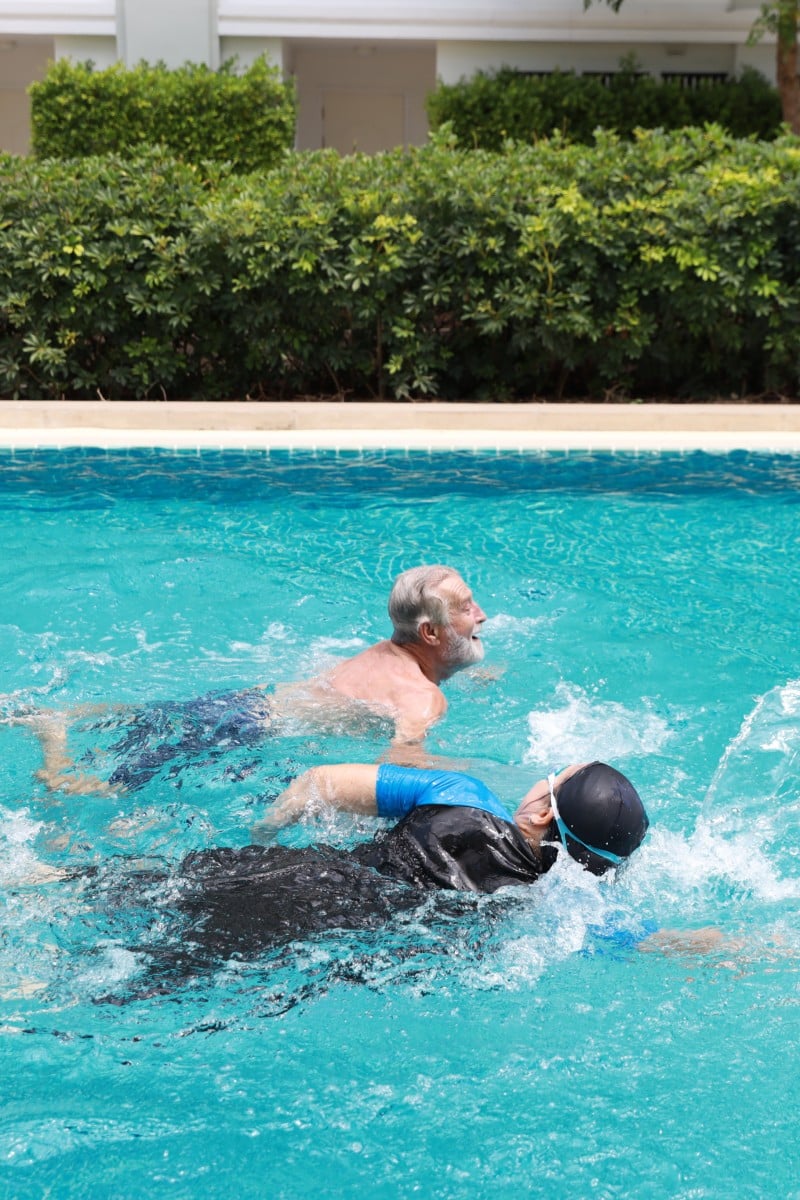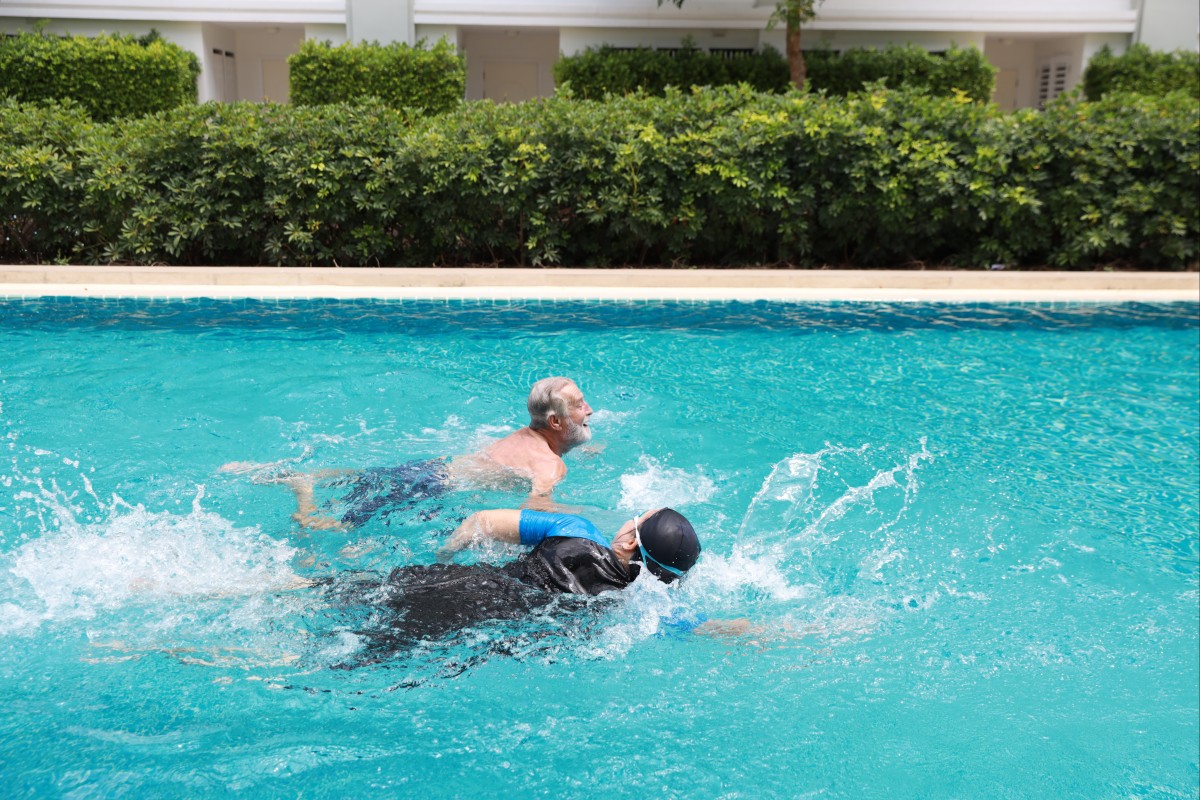
Swimming in chemicals: why pools can smell so strong (it’s mostly pee)
That pungent pool odour isn’t chlorine; it’s actually a chemical reaction between chlorine and bodily fluids, primarily urine.
 Why your pool smells: the truth about chlorine and urine reactions. Photo: Shutterstock
Why your pool smells: the truth about chlorine and urine reactions. Photo: Shutterstock No, it’s likely not the chlorine you smell when you walk by the pool. That aroma is actually from a chemical reaction between chlorine and bodily fluids, most notably urine. It is a hard truth to confront during the sweltering summer heat, but science can explain why it happens.
“People are peeing in the swimming pool, and we have the chemistry to prove it,” VidCon founder, author, social media content creator and science communicator Hank Green told millions of followers on his YouTube channel SciShow. “That’s not chlorine that creates the distinctive pool smell,” Green continued. “That’s chemicals that form when chlorine reacts with pee, sweat and body oils, but mostly pee.” (see graphic)
According to a 2019 survey by Sachs Media Group, just over half of Americans surveyed said they’ve used a pool as a communal bathtub at least once. Nearly a quarter said they have substituted a shower with a quick dip in the pool. Total number who have urinated in the pool as an adult? Two in five.
“Researchers mixed chlorine with uric acid, a compound found in both sweat and urine, but by far in more concentration in urine,” he explained.
“The result [was] trichloramine and cyanogen chloride, which contribute to the pool smell. But even worse, it can irritate your eyes and lungs.”
According to the National Centre for Health Research in the US, the health ramifications of swimming in water containing dangerous chemical by-products are still being studied.
One 2009 study discovered teenagers who swim in chlorinated pools are at higher risk of developing asthma or hay fever. Another study, in 2004, reported lung irritation in children who swam frequently. Multiple studies have reported higher rates of respiratory health problems in competitive swimmers.
While none of these studies have directly linked trichloramine and cyanogen chloride to these health hazards, the National Centre said researchers continue to theorise these chemicals as potential suspects.
However, the Atlanta-based Centres for Disease Control and Prevention (CDC) has directly linked chloramines – the chemical by-products of chlorine and body fluids – to eye, skin and respiratory irritation.
“So if you’re tired of getting all red-eyed after a swim and your pool smells like chlorine, you now know what to blame,” Green said. “And that’s why chemists are asking people to please, please stop peeing in the pool.”
What poo can teach scientists about dinosaurs and other ancient animals
How can I protect myself from all these chemicals?
The CDC recommends taking breaks from swimming every hour to use the bathroom, especially for young children. Before swimming, it’s a good idea to shower with soap for at least a minute. After swimming, rinse off before getting back into the water.
Avoid swallowing pool water, even if you do not intend to. This is because you might be swallowing more than you realise. According to the CDC, an average adult can swallow about a tablespoon of pool water in just 45 minutes of swimming.
When going underwater, you can pinch your nose to prevent swallowing water. Most importantly, do not go to the pool when you have diarrhoea, as this can spread harmful bacteria to others, and do not pee or poop in the pool, as this can contaminate the water.